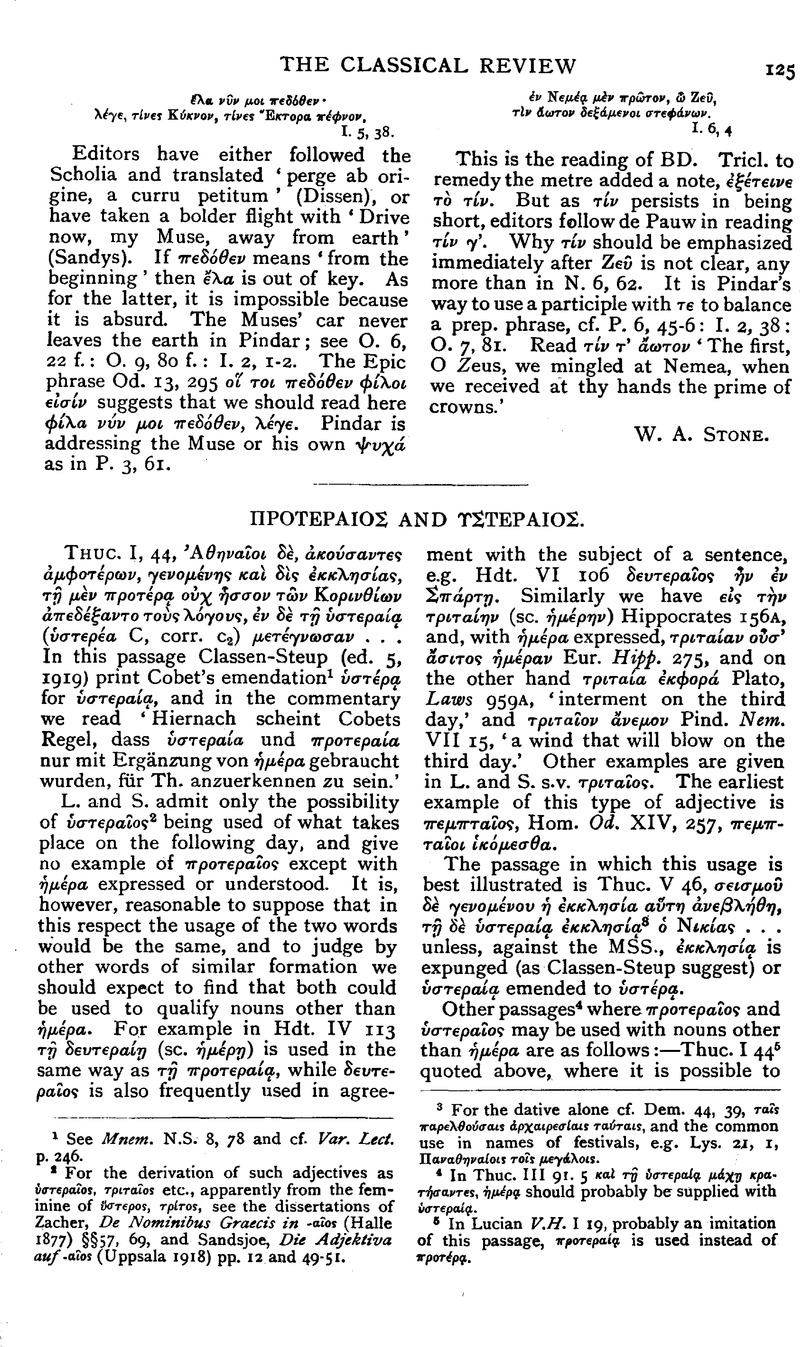No CrossRef data available.
Article contents
ΠΡΟΤΕΡΑΙΟΣ and ϒΣΤΕΡΑΙΟΣ
Published online by Cambridge University Press: 27 October 2009
Abstract

- Type
- Review Article
- Information
- Copyright
- Copyright © The Classical Association 1935
References
1 See Mnem. N.S. 8, 78 and cf. Var. Lect. p. 246.
2 For the derivation of such adjectives as ὑστεραος, τριταος etc., apparently from the feminine of ςτερος, τρτος, see the dissertations of Zacher, De Nominibus Graecis in (Halle 1877) §§57, 69, and Sandsjoe, Die Adjektiva auf-aios (Uppsala 1918) pp. 12 and 49–51.
3 For the dative alone cf. Dem. 44, 39, ![]() , and the common use in names of festivals, e.g. Lys. 21, 1,
, and the common use in names of festivals, e.g. Lys. 21, 1, ![]() .
.
4 In Thuc. III 91. 5 ![]() should probably be supplied with
should probably be supplied with ![]()
5 In Lucian V.H. I 19, probably an imitation of this passage, ![]() is used instead of
is used instead of ![]()
6 For ἐν with the dative meaning ‘in the Course o f cf. Plato Prot. 318A ![]() (sc.
(sc. ![]() ) and 321C
) and 321C ![]()




